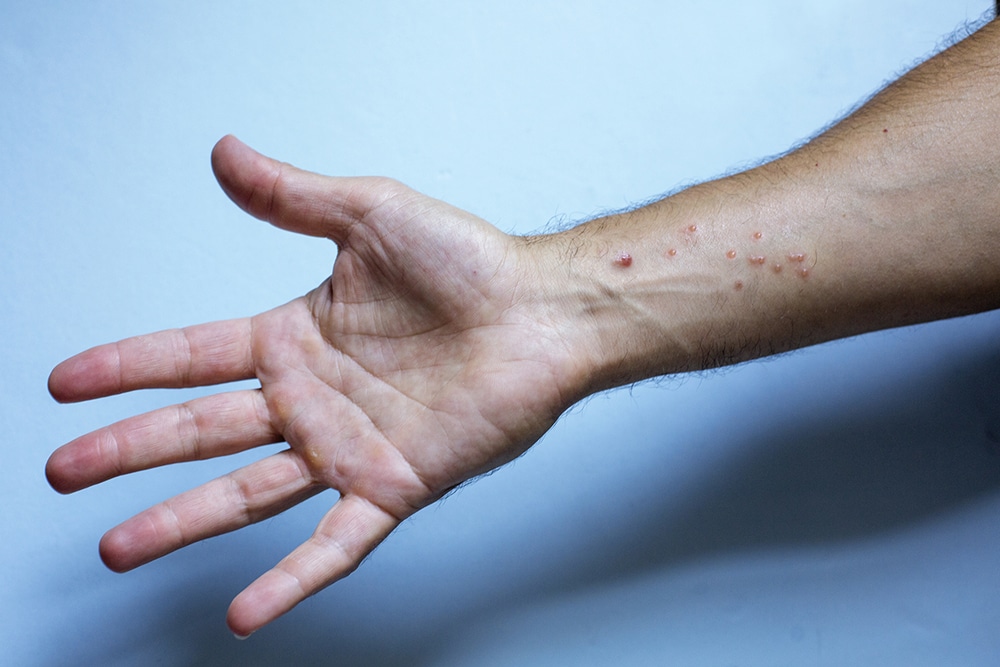Should you pop poison ivy blisters?

Poison ivy blisters can be itchy or painful, and it can be tempting to pop them. But doing so will only make you susceptible to infections. You’re suffering an intense itching that keeps you up at night and a pain that even topical steroid creams barely keep at bay! Let’s understand what causes this. What are poison ivy blisters? How can you manage them? Why shouldn't you pop your blisters? And who can you turn to for help?
What are poison ivy blisters?
Poison ivy leaves have a coating of oil known as urushiol oil. This substance wouldn’t be so dangerous if not for the haptens, the molecule that binds to skin protein and causes an immune response. Your immune cells rush to kill what it perceives as infected skin cells and destroy them while also killing healthy cells as collateral damage. This process results in the poison ivy rash you have with blisters you have the urge to pop.
How can you manage poison ivy blisters?
Several home and medical remedies allow you to manage your blisters. Here are some options in chronological order from the time of exposure to poison ivy:
- Cleaning the exposed area within 20 minutes of the exposure will minimize the severity of the urushiol oil’s effects. Products like Tecnu Original Outdoor Skin Cleanser are considered effective in removing the oil.
- Remove any article of clothing and any other items you suspect have been exposed to the plant. Urushiol can seep through clothing, increasing the chances of more blisters forming. These clothing and items can be washed with soap and water to remove the oil.
- After 24 to 48 hours, you will feel the full effect of your exposure to the plant. Depending on your level of exposure, the severity of your condition could be mild to severe. To relieve itching caused by poison oak or ivy, use Rash Relief or Calagel from Tecnu.
Why shouldn’t you pop poison ivy blisters?
There are several reasons you shouldn’t pop your blisters, and while there are exceptions to this, they are so particular that it would be best not to do so. Here are some risks of why to avoid popping any blisters that have formed:
- Infections - When it comes to any open wound, infections are possible.
- Longer healing time - The open wound and the possibility of infection will lengthen the recovery time.
- Pain - Open wounds are painful and won’t make things easier for you during recovery.
Fast relief options for poison ivy blisters
If you’ve encountered poison oak or ivy, there are effective over-the-counter products that help relieve post-exposure itch. If your rash gets a little too unbearable, Tecnu Calagel Anti-itch Gel provides instant relief.
Tecnu provides the best products to fight against poison ivy, keeping your time outdoors convenient and enjoyable!




